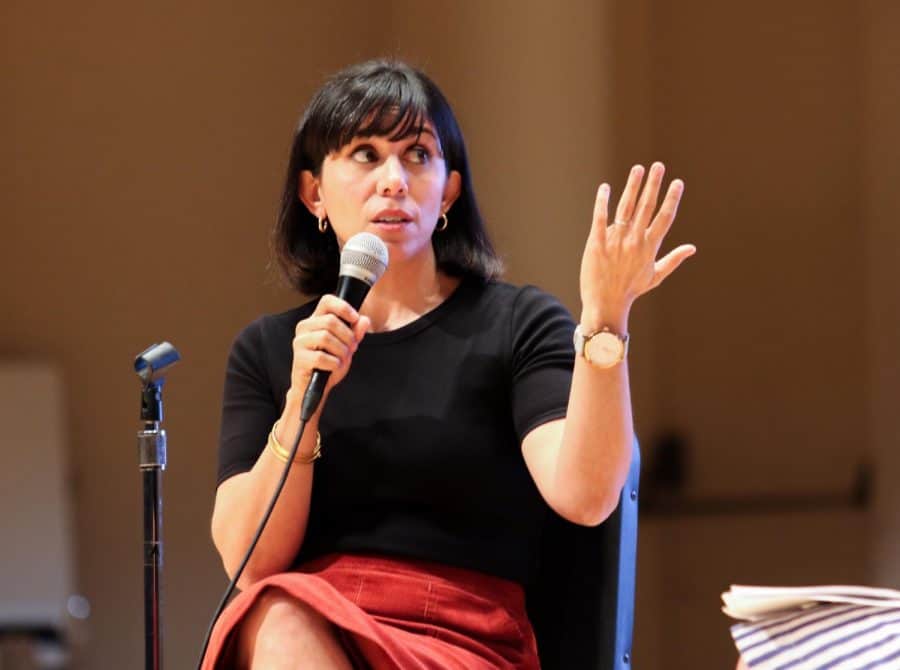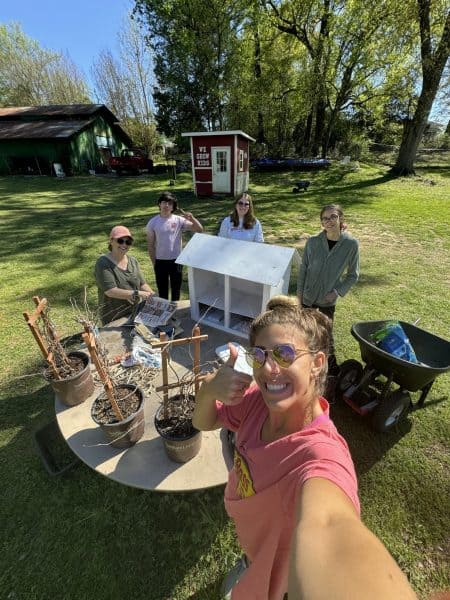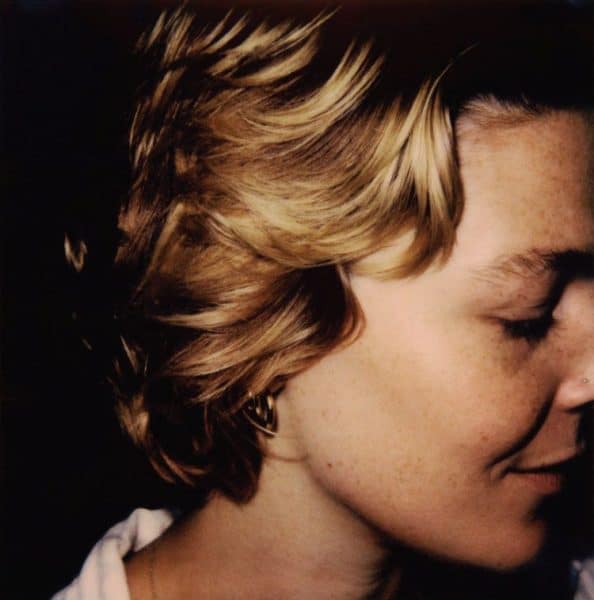Cristina Henríquez speaks to honors students, emphasizes importance of stories
October 16, 2019
Cristina Henríquez spoke to Honors College students about writing The Book of Unknown Americans, developing meaningful characters and identifying with humanity through stories.
Honors College students filled Moody Concert Hall to hear Cristina Henríquez, author of this year’s common book, a required book for Honors Year One students to read, speak about her book. Henríquez detailed her writing process and elaborated on her background and inspiration as an author. In addition to her personal story, she also discussed the plot and characters of “The Book of Unknown Americans” and discussed the importance of telling stories like these.
Emili Alexander, coordinator of Honors Year One, explained the purpose of the event for freshmen in the Honors College, who were required to read the book for their Honors Year One courses but had the choice to attend the author visit.
“Cristina Henríquez has written our common book, ‘The Book of Unknown Americans,’ and the goal is to just have her come to campus and provide a really engaging event for students in the Honors College at The University of Alabama, answer questions about her book, help to understand how her book corresponds to the freshman experience and even through all four years of college,” Alexander said.
Henríquez began the talk by discussing her background as a writer, explaining how she discovered how much she loved writing because of a crush she had in high school. It was not until she got to graduate school, however, that Henríquez happened upon an excerpt from “The House on Mango Street” by Sandra Cisneros and realized how the stories she had been reading and writing up to that point were limited and that it was possible to express more of her identity in her writing.
“There I was in graduate school, trying to become a writer, and all I was writing was stories set in the United States filled with white characters,” Henríquez said.
Henríquez’s mother was born in New Jersey and grew up in Delaware (where “The Book of Unknown Americans” is set), and her father was born and raised in Panama and came to the United States for college. Henríquez spoke about spending time in both the United States and Panama growing up.
“It had never occurred to me that my experiences in Panama were worth writing down, that they had any value,” Henríquez said. “It never occurred to me, honestly, that anyone would want to read those stories, which is just another way of saying that I thought part of me wasn’t worth very much, that maybe part of me didn’t have much value.”
Henríquez discussed both her father’s story and the stereotypes surrounding immigrants – particularly immigrants from countries like those that the characters are from in her novel – due to the one narrative commonly associated them, despite the reality that every person has a different background and a different story.
“It’s a narrative that erases people’s humanity and instead emphasizes only their status: documented, undocumented, legal, illegal,” Henríquez said. “They weren’t even people anymore – they were paperwork. So I wanted to recover that sense of humanity.”
“The Book of Unknown Americans” contains the narratives of several characters who have immigrated to the United States from different Central and Latin American countries. Though it is a work of fiction and not based on her own life, Henríquez strived to reflect the diversity of immigrant experiences and wanted to make sure readers could connect with the characters in personal ways, empathizing with them throughout their emotional journeys.
“I think that art is a safe way to practice feeling the emotions that make us human,” Henríquez said.
Vivienne Auvil, a freshman English major, said that the stories Henríquez told about her experiences pursuing a career as a writer resonated with her.
“I really enjoyed her talk just because she’s a writer, and that’s what I want to do,” Auvil said.
Brian Mageau, a freshman majoring in computer science, also enjoyed the event, specifically finding memorable the details of how much work and time was involved in writing the book.
“I thought it was pretty interesting,” Mageau said. “We were able to get insight into not only why she wrote, but also how it developed over time.”











